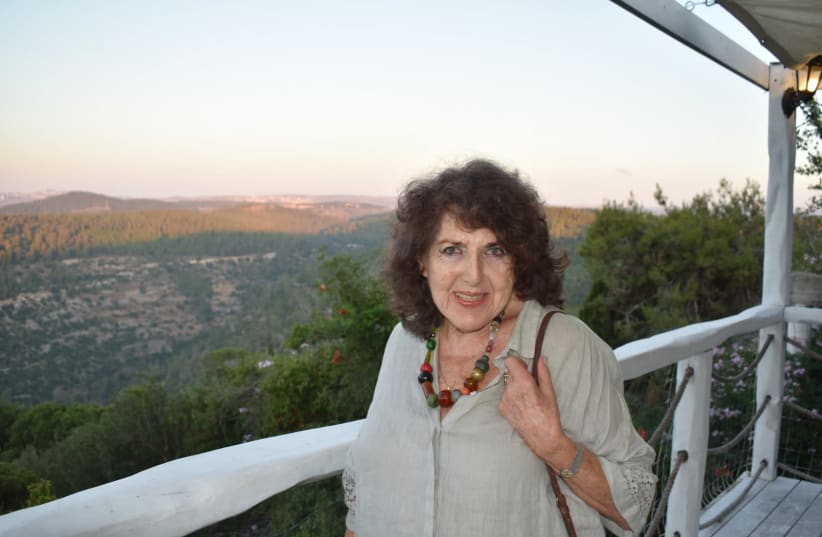Betty Eppel remembers her Polish-born mother, Perla Lewkowicz, singing “My Yiddishe Momme” at the family’s home in Valenciennes in northern France. “I was only seven when we were separated,” Betty says. “I never really knew her.” Nor did she really know the bitter fate of her mother and baby brother, Maurice, until Nazi hunter Serge Klarsfeld confirmed in 1967 that they had perished in Auschwitz.
Betty, born Berthe Lewkowicz on April 19, 1935, and her younger brother, Jacques, were hidden during the Holocaust (from 1942-45) by a Christian couple named Victor and Josephine Guicherd on their small farm in the southern French village of Dullin.
After making aliyah in 1964 and settling in Jerusalem, she married Israel Radio’s Scottish-born journalist David Eppel, had two children, Yaron and Michal, and taught French at the Foreign Ministry. “I had a good life and for many years I didn’t see films related to the Shoah,” she says. “But I did a course at Yad Vashem on how to tell my story as a hidden child, and until corona started, I told it to classes of children and soldiers.” Last year, Betty was contacted by a Frenchman named Frédéric Pelisson, who invited her to attend an August gathering in Dullin, where she and a great-nephew of the Guicherds named Thomas Ilbert would present a medal to the village in honor of residents who hid Jewish children from Klaus Barbie’s SS men.
She could not travel to France due to the pandemic, but about 20 people attended the event, for which local children created a collage with pictures of Betty and the Guicherds as well as poems on trees for her.
On September 30, Betty received an email from Pelisson based on research done by Belgium’s “Memorial de Maline.” It contains photographs of her mother and brother, documenting that they were born on 24/12/1904 and 31/7/40, and harrowing details of their final days.
“Perla Lewkowicz (Blumsztajn) and her son, Maurice, arrived [at the Maline barracks in Belgium] on 12/09/1942 during the large roundup in northern France by the German police and French gendarmerie,” reads the letter signed by Gunter Vandeplas.
It relates how Betty’s mother and brother were among more than 500 Jews transferred to Maline and then in the Transport X train with 1,047 others to Auschwitz-Birkenau, where they arrived on September 15. After the infamous selection process, 716 Jews were murdered in the Birkenau gas chambers, while 331 deportees were assigned to forced labor. Of these, 25 survived on January 27, 1945, when Auschwitz was liberated by the Red Army.
There were no death records for Perla or Maurice Lewkowicz, the letter states, noting that the Nazis destroyed many documents before the liberation. “The probability that a woman and her infant son were sent to work is low, and it is probable that they were sent to the gas chambers immediately upon their arrival in Auschwitz,” it concludes.
Betty’s eyes well up. “I couldn’t sleep after reading that letter,” she tells me. Feeling the need to tell her son the story in person, she violated lockdown rules and drove to Yaron’s home in Har Adar, near Jerusalem, where he lives with his wife and four children.
The next night, Betty went to protest outside the Prime Minister’s Residence in Jerusalem. “I couldn’t stay at home any more,” she says. “I need to do something. We have to keep fighting. That’s what I learned from my mother.”
Next year, Betty plans on traveling with her children and six grandchildren to Dullin to present the medal to the village. It is the closure she has long sought – and for which she is still fighting.
